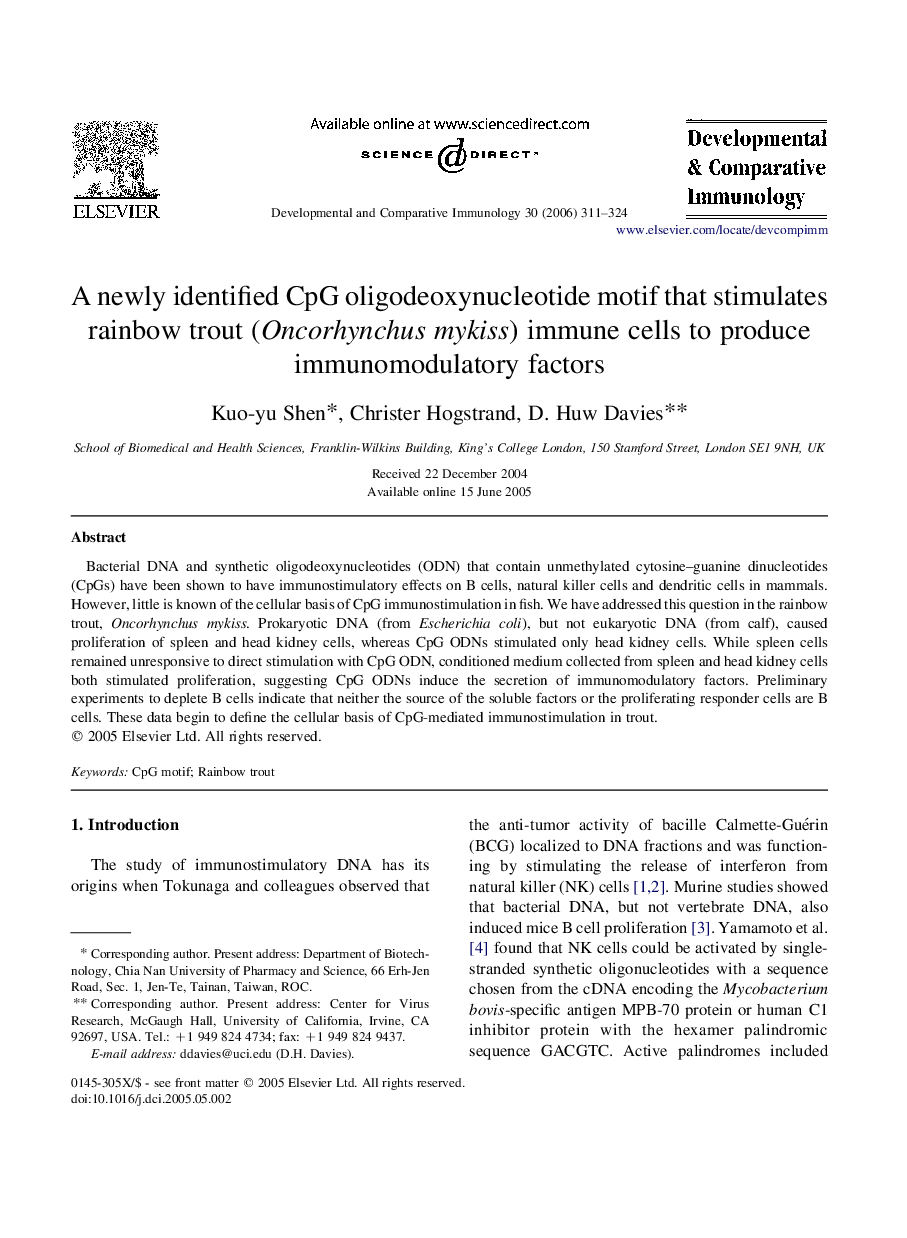| Article ID | Journal | Published Year | Pages | File Type |
|---|---|---|---|---|
| 2430541 | Developmental & Comparative Immunology | 2006 | 14 Pages |
Bacterial DNA and synthetic oligodeoxynucleotides (ODN) that contain unmethylated cytosine–guanine dinucleotides (CpGs) have been shown to have immunostimulatory effects on B cells, natural killer cells and dendritic cells in mammals. However, little is known of the cellular basis of CpG immunostimulation in fish. We have addressed this question in the rainbow trout, Oncorhynchus mykiss. Prokaryotic DNA (from Escherichia coli), but not eukaryotic DNA (from calf), caused proliferation of spleen and head kidney cells, whereas CpG ODNs stimulated only head kidney cells. While spleen cells remained unresponsive to direct stimulation with CpG ODN, conditioned medium collected from spleen and head kidney cells both stimulated proliferation, suggesting CpG ODNs induce the secretion of immunomodulatory factors. Preliminary experiments to deplete B cells indicate that neither the source of the soluble factors or the proliferating responder cells are B cells. These data begin to define the cellular basis of CpG-mediated immunostimulation in trout.
